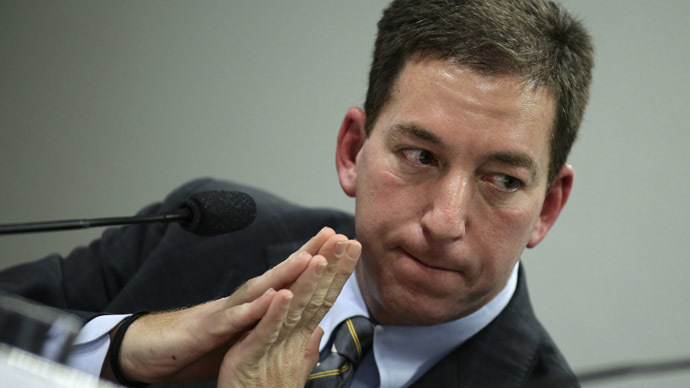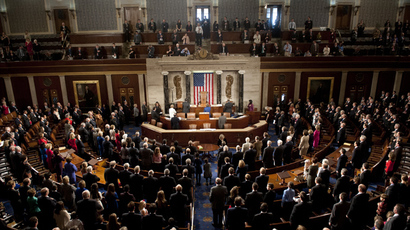Snowden 'not the source' of Middle East surveillance leak – Guardian

The Guardian insists that the latest leaks published by the Independent revealing a UK-backed internet-monitoring station in the Middle East were not from Snowden. “I have never provided any journalistic materials to the Independent,” the paper cites him.
The newspaper claimed that the former NSA contractor told them on
Friday that he had neither “spoken with nor worked with”
the Independent, or distributed documents pertaining to security
information among their journalists.
“The journalists I have worked with have, at my request, been
judicious and careful in ensuring that the only things disclosed
are what the public should know but that does not place any
person in danger,” the paper cites Snowden as saying .
The author of the Guardian article, Glenn Greenwald, added that
the disclosure was of the “type” that journalists have
thus far avoided publishing on account of its sensitivity.
Greenwald pointed out that it was the first time the newspaper had published any purported NSA leaks, so it begged the question where they got the information from.
He speculated that the UK government intentionally leaked the materials to create the impression that the release of information could potentially be dangerous.
“It appears that the UK government is now seeking to create an
appearance that the Guardian and Washington Post's disclosures
are harmful, and they are doing so by intentionally leaking
harmful information to The Independent and attributing it to
others,” the Guardian cites Snowden’s response. “The
UK government should explain the reasoning behind this decision
to disclose information that, were it released by a private
citizen, they would argue is a criminal act.”
The Independent’s Oliver Wright tweeted later in the day that
“For the record: The Independent was not leaked or ‘duped’
into publishing today’s front page story by the Government.”
However, the source of the information was not clarified.
"Nobody said they were 'duped' into publishing anything. The
question is: who provided them this document or the information
in it?" Greenwald riposted. "It clearly did not come from
Snowden or any of the journalists with whom he has directly
worked. The Independent provided no source information whatsoever
for their rather significant disclosure of top secret
information."
The Independent’s documents revealed that the UK has been working
on a secret Middle East web surveillance base, as part of a $1.5
billion project, intercepting and gathering emails, telephone
calls, and web traffic for Western intelligence.

The undercover internet-monitoring project is still a work in
progress and is being organized by the UK’s Government
Communications Headquarters (GCHQ), according the documents
studied by The Independent.
Greenwald commented on the convenience of the timing in the
Independent’s release of the documents, especially considering
the legal controversy surrounding the seizure of his Brazilian
partner’s electronic documents as he attempted to transfer
flights in the UK.
“Right as there is a major scandal over the UK's abusive and
lawless exploitation of its Terrorism Act - with public opinion
against the use of the Terrorism law to detain David Miranda
[Greenwald’s partner]- and right as the UK government is trying
to tell a court that there are serious dangers to the public
safety from these documents, there suddenly appears exactly the
type of disclosure the UK government wants,” he pointed out.
On Thursday, a judge gave UK authorities until August 30 to prove that the documents in Miranda’s possession were a “genuine threat to national security.”
The seeds of a potential media war seemed to be germinating as
the Guardian went on to lambast the Independent for their
accusation that the Guardian had entered into a deal with the UK
government about material to be released.
“The Government…demanded that the paper not publish details of
how UK telecoms firms, including BT and Vodafone, were secretly
collaborating with GCHQ to intercept the vast majority of all
internet traffic entering the country,” wrote The
Independent, publishing a quote from a senior Whitehall source.
“We agreed with The Guardian that our discussions with them
would remain confidential,” the source allegedly said.
A “very senior government official” acting on behalf of
Britain’s prime minister demanded the return or destruction of
files leaked by NSA whistleblower Edward Snowden, the Guardian’s
editor Alan Rusbridger told the BBC on Tuesday.
He revealed the day before that intelligence officials from the
Government Communications Headquarters (GCHQ) told him that he
would either have to hand over all the classified documents or
have the newspaper’s hard drives destroyed.
However, Greenwald responded indignantly to the accusation that
the newspaper was holding back: “it [the Independent’s
article] strongly suggests that there is some agreement in place
to restrict the Guardian's ongoing reporting about the NSA
documents. Speaking for myself, let me make one thing clear: I'm
not aware of, nor subject to, any agreement that imposes any
limitations of any kind on the reporting that I am doing on these
documents,” he insisted, adding that he would “never”
agree to any such restrictions on investigative journalism.














